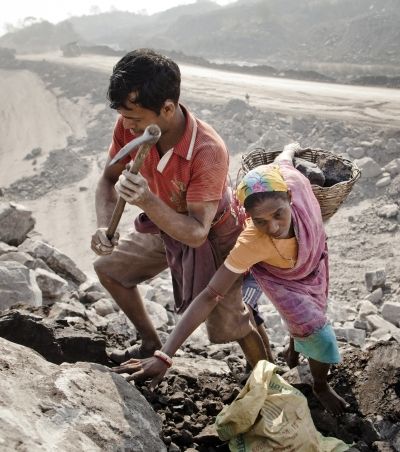 The Maoist-infested state needs a visionary leader and Hemant Soren is definitely not one
The Maoist-infested state needs a visionary leader and Hemant Soren is definitely not one
The Congress is in the process of forming a government with Hemant Soren, the son of former tribal firebrand leader Shibu Soren, as chief minister in Jharkhand. There is no numerical difficulty with this.
With 18 members of Legislative Assembly in the 81-member assembly, the Jharkhand Mukti Morcha, Soren's party, is kingmaker anyway. The Bharatiya Janata Party and the JMM had an alliance earlier, but that government fell in January when JMM withdrew its support.
Now the Congress is replacing the BJP in propping up Hemant, a young man who was enrolled in the Birla Institute of Technology, Ranchi (whether he completed his studies is another matter). Soren's elder son Durga was the one Shibu was grooming as his heir. He had some spark of promise. Hemant has several cases against him and the Ranchi high court is currently hearing one of assets disproportionate to income. Meanwhile, Jharkhand is being engulfed even more securely in their grips by the Maoists. Those who know, say the perpetrators of the Chhattisgarh massacre of the Congress leaders are right now holed up in Jharkhand. And so it goes…
Those who live in Jharkhand say the state might as well have fallen off the map for all Delhi could care. Corruption is rampant and there is no evidence to suggest anything would change with the new government. All Delhi is concerned about is how to secure respectable numbers in the Lok Sabha elections in 2014. Jharkhand sends 14 seats to the Lok Sabha and the position of the BJP is so bad, that it might get just one seat, as opposed to the eight it currently holds. (This is subject to a caveat: the number might change if Narendra Modi visits Jharkhand).
The JMM is obviously influential in Jharkhand, but also has a presence in two or so seats each in Odisha and West Bengal. The Congress has begun working on alliance partners and is likely to go into the Lok Sabha elections with the JMM. If it means handing over the state to the JMM, so be it.
In the last 12 years, Jharkhand has not had any government that has managed to complete its term. It has had eight governments in 12 years. This could be because the tribal identity is undergoing a fundamental change. Earlier, the great unifying factor was the "foreigner" (diku), the non-tribal. Jharkhand tribals resisted efforts by the Mughal dynasty and the British to overcome their rich land and luxuriant forests. But the tribals were marginalised when the Hindu traders and Muslim farmers moved in and modern law and administration was established.
British authority and its accompanying array of devices facilitated the process of pauperising them. The administration was manned by dikus and the introduction of paper currency was alien to the tribals. Their villages went to -- principally Muslim -- landlords who wanted access to the forests and the communities that lived there as cheap labour. All this had one inevitable result: that of armed resistance.
Independent India offered little that was better. Missionaries stayed behind and the tribals continued to resist efforts to subvert their own variant of Hinduism and Gods -- which were modelled on living tribal leaders. This led to the realisation that their lot would not improve until their identity was recognised as unique: for this they needed self-governance and their own province. The Jharkhand Mukti Morcha was started in 1973 by a young man just out of his teens, Shibu Soren.
Till such time as there was a diku, the tribal identity was carved out in juxtaposition to it. But gradually, younger tribals realised that it was more profitable to side with the diku than to oppose him. One fallout of this was Madhu Koda and the mining leases scandal.
The net result is, Jharkhand is now turning away even from the JMM and is slipping into the hands of the Maoists. The Vidhan Sabha has not had one meaningful discussion on how the tribals should be integrated. The state needs a visionary leader and Hemant Soren is definitely not one. The Congress is setting up a coordination committee and expects it will be able to control the state government from the outside. Locals just laugh, suggesting: "We've heard that before".
The only word of appreciation for Delhi is for the one man who has gone where even local officials of Jharkhand are chary of going. Rural Development Minister Jairam Ramesh, who has gone deep into the Pharanda forests, in Jhumra Pahar and Saryug, the three places completely under the domination of the Maoists. Several projects have been started in these areas to tell the tribals that the state does exist for them too.
Otherwise, it is Hemant Soren: the more things change, the more they remain the same.
Image: Local villagers work to scavenge coal illegally from an open-cast coal mine in the village of Jina Gora, Jharkhand
Photograph: Daniel Berehulak/Getty Images












 © 2025
© 2025